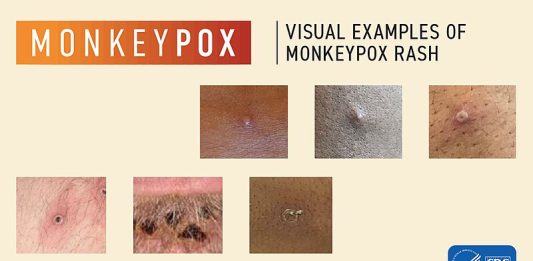The upsurge of mpox in the Democratic Republic of the Congo (DRC) and in many other countries in Africa has been determined by WHO to constitute a public health emergency of international concern (PHEIC) under the International Health Regulations (2005) (IHR).
The Committee of experts considered the upsurge of mpox to be a PHEIC, with potential to spread further across countries in Africa and possibly outside the continent. Committee Chair said, “The current upsurge of mpox in parts of Africa, along with the spread of a new sexually transmissible strain of the monkeypox virus, is an emergency, not only for Africa, but for the entire globe. Mpox, originating in Africa, was neglected there, and later caused a global outbreak in 2022. It is time to act decisively to prevent history from repeating itself.”
Earlier, in July 2022, the multi-country outbreak of mpox was declared a PHEIC as it spread rapidly via sexual contact across a range of countries. However, it was declared over in May 2023 following sustained decline in cases.
The emergence and rapid spread of the new strain ‘clade 1b’ in DRC last year, which spread mainly through sexual contacts, and its detection in neighbouring countries is concerning, and is one of the main reasons for the declaration of the PHEIC. In the past month, over 100 laboratory-confirmed cases of clade 1b were reported in Burundi, Kenya, Rwanda and Uganda that have not reported mpox before.
Last week, WHO initiated the process for Emergency Use Listing (EUL) for mpox vaccines. This is expected to accelerate vaccine access for lower-income countries which have not yet issued their own national regulatory approval.
The two vaccines currently in use for mpox are recommended by WHO. For healthy adults, non-replicating (MVA-BN), minimally replicating (LC 16) or replicating vaccinia-based vaccines (ACAM2000) are appropriate. MVA-BN is a 3rd generation mpox vaccine administered as two-dose subcutaneous injection given at least 4 weeks apart. Both 1 and 2 doses of MVA-BN are highly effective at preventing mpox. LC16 and ACAM2000 are single dose mpox vaccine.
Mpox is a viral illness transmitted to humans through physical contact with infected persons, or with contaminated materials, or with infected animals. It caused by the monkeypox virus (MPXV) which is a double-stranded DNA virus belonging to genus Orthopoxvirus along with vaccinia virus (VACV) and variola virus (VARV).
The monkeypox virus (MPXV) is closely related to smallpox, the deadliest virus in history responsible for unparalleled devastation of human population in the past centuries. With the complete eradication and subsequent cessation of smallpox vaccination programme (which had provided some cross protection against monkeypox virus as well), the current human population has much reduced levels of immunity against this group of viruses. This reasonably explains the current rise and spread of monkeypox virus from its endemic regions in Africa.
***
References:
- WHO News – WHO Director-General declares mpox outbreak a public health emergency of international concern. Posted 14 August 2024. Available at https://www.who.int/news/item/14-08-2024-who-director-general-declares-mpox-outbreak-a-public-health-emergency-of-international-concern
***
Related articles:
Monkeypox (Mpox) Vaccines: WHO initiates EUL procedure (10 August 2024)
Virulent Strain of Monkeypox (MPXV) Spread Through Sexual Contact (20 April 2024)
Monkeypox virus (MPXV) variants given new names (12 August 2022)
Will Monkeypox go Corona way? (23 June 2022)
***



































